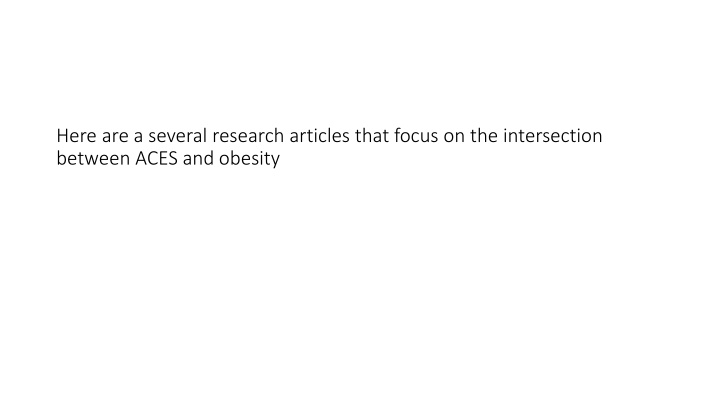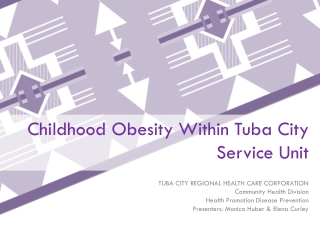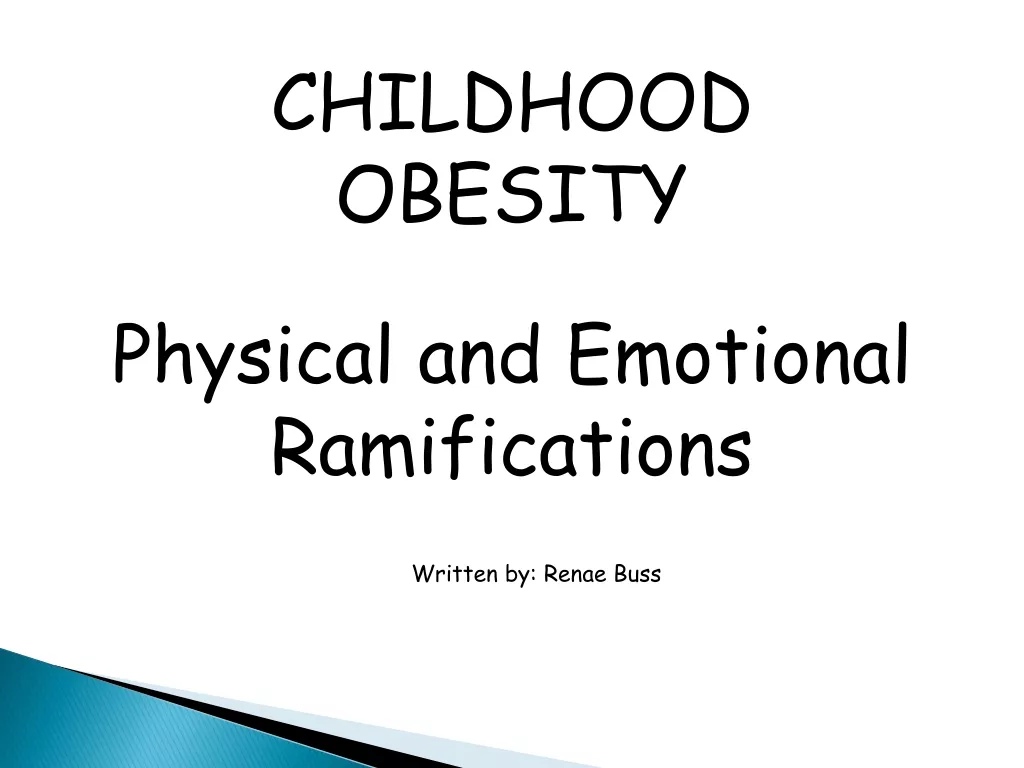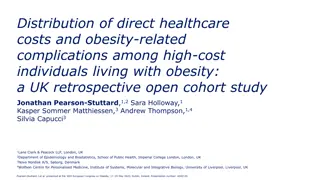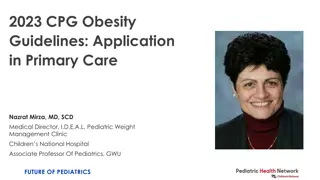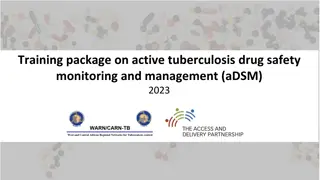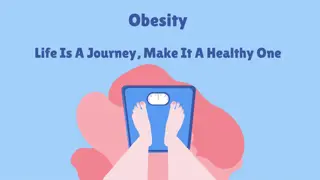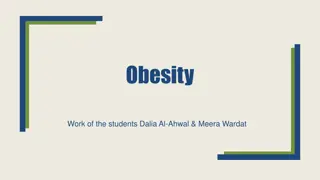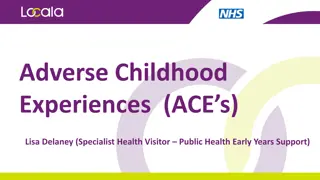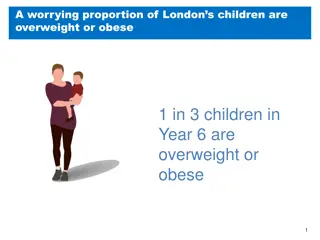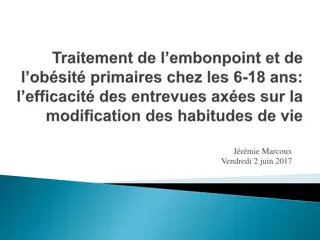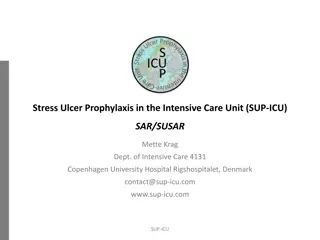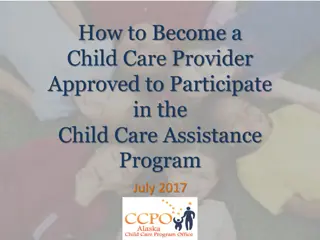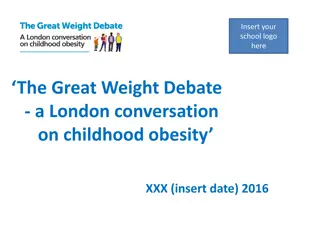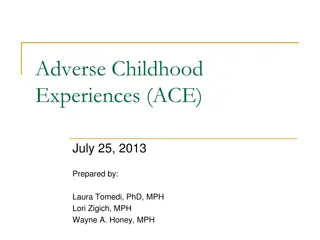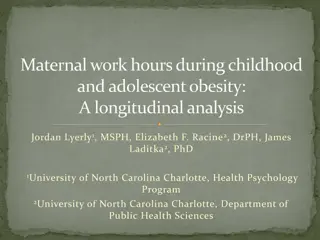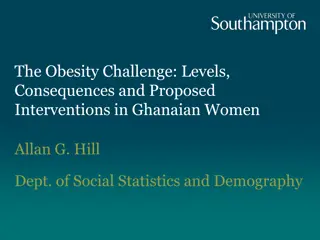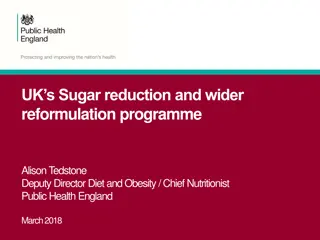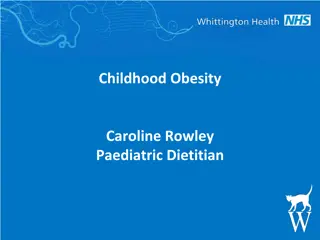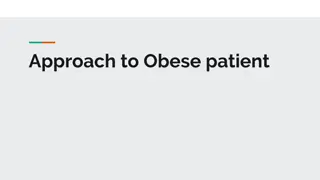Adverse Childhood Events and Obesity: Implications for Health Care Providers
Adverse childhood events have been linked to obesity, highlighting the importance of addressing trauma survivors in health promotion efforts. Research suggests childhood maltreatment can impact physical health outcomes and risky lifestyle factors in adulthood, particularly among obese and depressed individuals. Routine assessment for childhood maltreatment is crucial for effective intervention strategies.
Download Presentation

Please find below an Image/Link to download the presentation.
The content on the website is provided AS IS for your information and personal use only. It may not be sold, licensed, or shared on other websites without obtaining consent from the author.If you encounter any issues during the download, it is possible that the publisher has removed the file from their server.
You are allowed to download the files provided on this website for personal or commercial use, subject to the condition that they are used lawfully. All files are the property of their respective owners.
The content on the website is provided AS IS for your information and personal use only. It may not be sold, licensed, or shared on other websites without obtaining consent from the author.
E N D
Presentation Transcript
Here are a several research articles that focus on the intersection between ACES and obesity
Although adverse childhood events may account for only a small proportion of the current obesity epidemic in the U.S. (Alvarez et al., 2007), risk of obesity in this select group is highly relevant. Health care providers who work with trauma survivors may be well poised to assist in delivery of health promotion and preventive interventions targeting this group. While continued research would be useful in determining and clarifying potential moderators and mechanisms, this study along with others suggests that adverse childhood events are important risk factors for not only poor psychological outcomes in adulthood, but also risky lifestyle factors and poor physical health outcomes.
The present study illustrates the importance of routinely assessing for the presence of childhood maltreatment when intervening with obese and/or depressed adult women. If abuse is identified, the individual may benefit from a referral for additional treatment, especially if the depression is being treated pharmacologically. The study also emphasizes the fact that child abuse, particularly child physical abuse, may have different associations with adult depression, depending on race and ethnicity
Individuals reporting a history of any childhood adversity had higher systolic and diastolic blood pressure[44]. The results herein provide preliminary evidence suggesting that childhood adversity is associated with metabolic syndrome components in individuals with mood disorders. An association between stressful events and episode recurrences has repeatedly been found in bipolar patients[45]. A public health paradox is implicit in these observations. One sees that certain common public health problems, while being often also unconscious attempted solutions to major life problems, harken back to the developmental years. The idea of the problem being a solution, while understandably disturbing to many, is certainly in keeping with the fact that opposing forces routinely coexist in biological systems. Clinical evidence suggests that metabolism and emotion homeostasis might share common mechanisms.
N=26,229 five states 30.8% of women lived with a substance using household member as children Adverse childhood experiences are common but typically unrecognized Their link to major problems later in life is strong, proportionate, and logical They are the nation s most basic public health problem It is comforting to mistake intermediary mechanism for basic cause What presents as the Problem may in fact be an attempted solution. Treating the solution may be threatening and cause flight from treatment Primary prevention is presently the only feasible population approach Using this information clinically will be resisted, by us
Thewell-being of mothers, infants & children determines the health of the next generation and can help predict future public health challenges for families, communities and the medical care system -Healthy People 2020
Never before in the history of medicine have we had better insight into the factors that determine the health of an individual from infancy to adulthood, which is part of the life course perspective a way of looking at life not as disconnected stages but as integrated across time.
